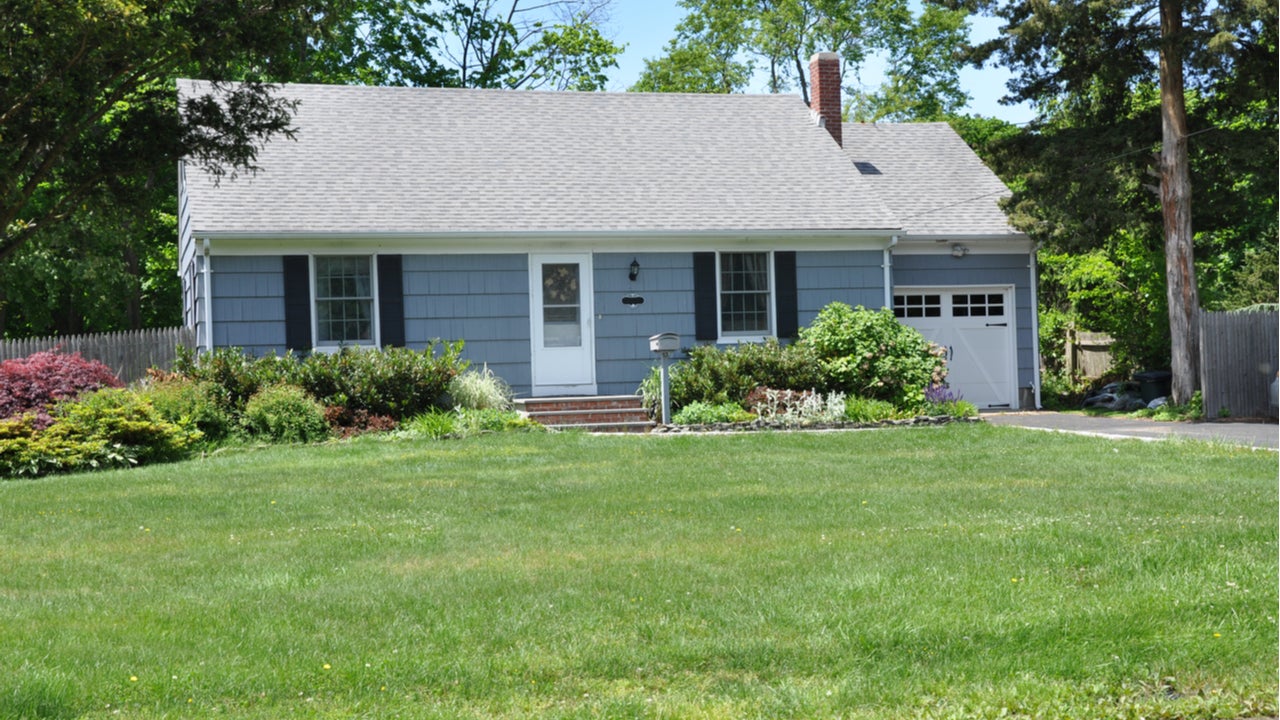How to get homeowners insurance discounts



Applying discounts to your policy can be one of the most effective ways to save money on your homeowners insurance. Some discounts may not be quite so simple to obtain, installing a new roof, for instance, but others may not require much of you at all. Bankrate’s insurance editorial team explores discount opportunities and ways you can save on your homeowners policy.
How can I get home insurance discounts?
Contacting your home insurance company or the agent who sold you the policy is a good first step in getting home insurance discounts. Most insurance experts recommend that you speak with an insurance professional 30 to 60 days before your policy renews. A licensed agent can not only help you better understand your policy but can also identify new discounts you potentially qualify for. For instance, if you’ve added a front door camera or have gone a certain period of time without filing a claim, you may qualify for a lower rate.
Home insurance companies can give discounts across several categories, like customer loyalty, payment-based discounts, savings for damage mitigation and so on. While exactly which discounts are available will depend on your provider, we’ve listed some of the most common home insurance discounts below.
Bundling
One of the biggest potential ways to save through a home insurance discount is by bundling insurance policies. With a home and auto bundle, you insure both policies with the same carrier. Not only is it easier for you to keep track of your insurance policies, but it also means you should be eligible for some kind of bundling discount. Although the most common bundle includes home and auto, your insurance carrier may also offer other bundling options, such as life, renters and auto. Exact savings will vary based on your provider, but some advertise discounts up to 25 percent.
Security/safety measures
Home insurance rates are, largely, a calculation of risk. The more of a risk it is to insure your property, the more you’ll likely pay for your policy. But, taking steps to lower the risk of filing a claim may help you earn a discount. For instance, adding security features to your home can reduce the chances of a break-in, while certain monitors can alert you to things like fires and gas leaks and save your family from injuries or even death. Security and safety measures are usually devices, such as:
- Deadbolts on exterior doors
- Fire extinguishers
- Smoke detectors
- Carbon monoxide detectors
- Water leak detectors
- Gas leak detectors
- Burglar and fire alarm systems
- Sprinkler system
Depending on the company, some smart home devices, like smart thermostats and home monitoring systems, can get you a discount on your home insurance, too. Certain insurance companies even partner with smart device companies to offer additional incentives, including free devices.
Home improvements
Updating your home to make it more resistant to damage is another way to get home insurance discounts. For example, you might qualify for cheaper home insurance if you install an impact-resistant roof or storm shutters to mitigate weather-related damage. Some insurance companies also offer discounts for upgrading to a new electrical, heating or plumbing system if you live in an older home.
Loyalty discounts
Some home insurance companies reward you for staying with the same company year after year. For instance, Allstate rewards new customers with a welcome discount, and a continued discount each year you remain a customer. Loyalty discounts vary and are not offered by all companies, though.
Claims-free
The longer you go without filing a claim, the more you typically stand to save on home insurance with this discount. Most insurance companies give a discount after you have been claims-free for either three or five years. The discount remains until you file a claim under your homeowners insurance.
New homebuyer
If this is your first time buying a home and gathering home insurance quotes, don’t forget to mention that you are a new homebuyer. Not only can first-time homebuyers qualify for this discount, but some companies also extend the lower rate to buyers of brand-new construction — even if they have owned a home before.
Early signing discount
The early signing discount is a reduced rate on your home insurance for signing up with the company before your current policy expires. Most companies send renewals out between 30 to 60 days before the current policy term ends. If you shop and sign up with a new company before the effective renewal date, you may qualify for this discount.
Payment-based discounts
How you pay your premium could help you lower it. Setting up automatic payments, opting for paperless billing and paying on time may help you save on your home insurance costs. Generally, these kinds of discounts are smaller, typically around 5 percent. But, if there is more than one payment-based discount available, you may be able to stack them for extra savings.
Homeowner-based discounts
Some insurers offer discounts based on a homeowner’s age or occupation. These discounts could be available to seniors, retirees, members of the military, government employees and others. Ask an agent for more information.
How do home insurance discounts work?
The way in which home insurance discounts work varies by discount and insurer. Some are effective right away, while others only work when you do something like improving your home. For example, you can get an early signing discount when you sign up before your current policy renews. But, you will not qualify for a home improvement discount unless you make a modification or upgrade your home.
Here are some helpful tips to remember when looking for home insurance discounts:
- Discount amounts can be capped: Though some home insurance discounts are stackable, most insurance companies cap the total amount you can save on a policy. The amount varies by the insurance company, but you can usually qualify for up to 40 percent in discounted savings.
- Not everyone gets the maximum amount: If you have seen the language “up to” when shopping for insurance, it means not everyone qualifies for the maximum discount. To get the highest discount, you usually have to meet certain qualifications. For instance, a company may offer a 5 percent discount for being claims-free for three years but only offer the full 10 percent to a homeowner with five years claims-free.
- Discounts vary: Where you live and the insurance company you choose matter. Not all states allow all discounts, and not all insurance companies offer the same amount or level of discounts. When shopping for home insurance, it does not hurt to ask an agent about the discount opportunities on offer and to research what’s available in your state.
- Comparison shop for best results: Just because a company offers lots of home insurance discounts does not mean it offers the best price. The only way to know you are getting the best deal on home insurance is to shop around and get multiple quotes for the same coverage. The most important factor is your final price, not how many discounts are applied to your policy.
Other ways to save
Fortunately, there are a number of other ways to save besides applying discounts. Some companies offer discounts if you are married. You may even get better rates depending on what ZIP code you live in. Purchasing only the coverage you need is another way to save.
You might also end up paying less for home insurance by:
- Not smoking
- Living in a gated community
- Having a certain occupation, including being in the military
- Being retired
- Increasing your home insurance deductible (make sure you can afford the additional out-of-pocket expenses in the event of a claim before considering this option)
Frequently asked questions
-
In most cases, you’re generally given a property insurance discount if your insurance company determines that you qualify or are eligible for one. For example, living in a gated community could make you eligible for this type of discount if the insurance company offers it. Or, you may be eligible for a senior discount if you meet age requirements. Many home insurance discounts are stackable, which means that if you qualify for multiple, you can apply some or all of them to maximize your savings. Some discounts are automatic while others may need to be requested, so asking which discounts are available and which you qualify for may help ensure that you receive all the discounts you are eligible for.
-
An insurance to value discount means you are insuring the home for the replacement cost recommended by the insurance company. Meeting the minimum coverage the estimation tool recommends can ensure the home can be rebuilt if it were a total loss. Not all insurance companies offer this discount, so you may have to ask if it’s available and what the insurance to value amount is for your home so it can be applied.
-
The insurance value and market value of your home aren’t the same. The insurance value is the minimum amount of money the insurance company thinks it would take to rebuild your home if it’s completely lost or destroyed. On the other hand, the market value is an estimate of your home’s overall worth, including the land it’s on and the amount you could potentially sell it for, given current market conditions. Generally, the market value is higher than the insurance value because it factors in the land value.
-
No, you can’t usually negotiate the price of your homeowners insurance premium. Insurers weigh a number of factors like your home’s condition, location and value, plus unique factors to you, such as your claims history or credit tier, in order to come up with your premium. If you’d like a lower rate, you can ask your provider about additional discounts you may qualify for, or you may want to shop around for coverage from different insurers who may offer you a cheaper premium.
Why we ask for feedback Your feedback helps us improve our content and services. It takes less than a minute to complete.
Your responses are anonymous and will only be used for improving our website.
You may also like

When to file a home insurance claim and how to do it

How to read a homeowners insurance policy

How to save on homeowners insurance premiums in 2025

